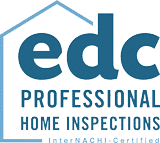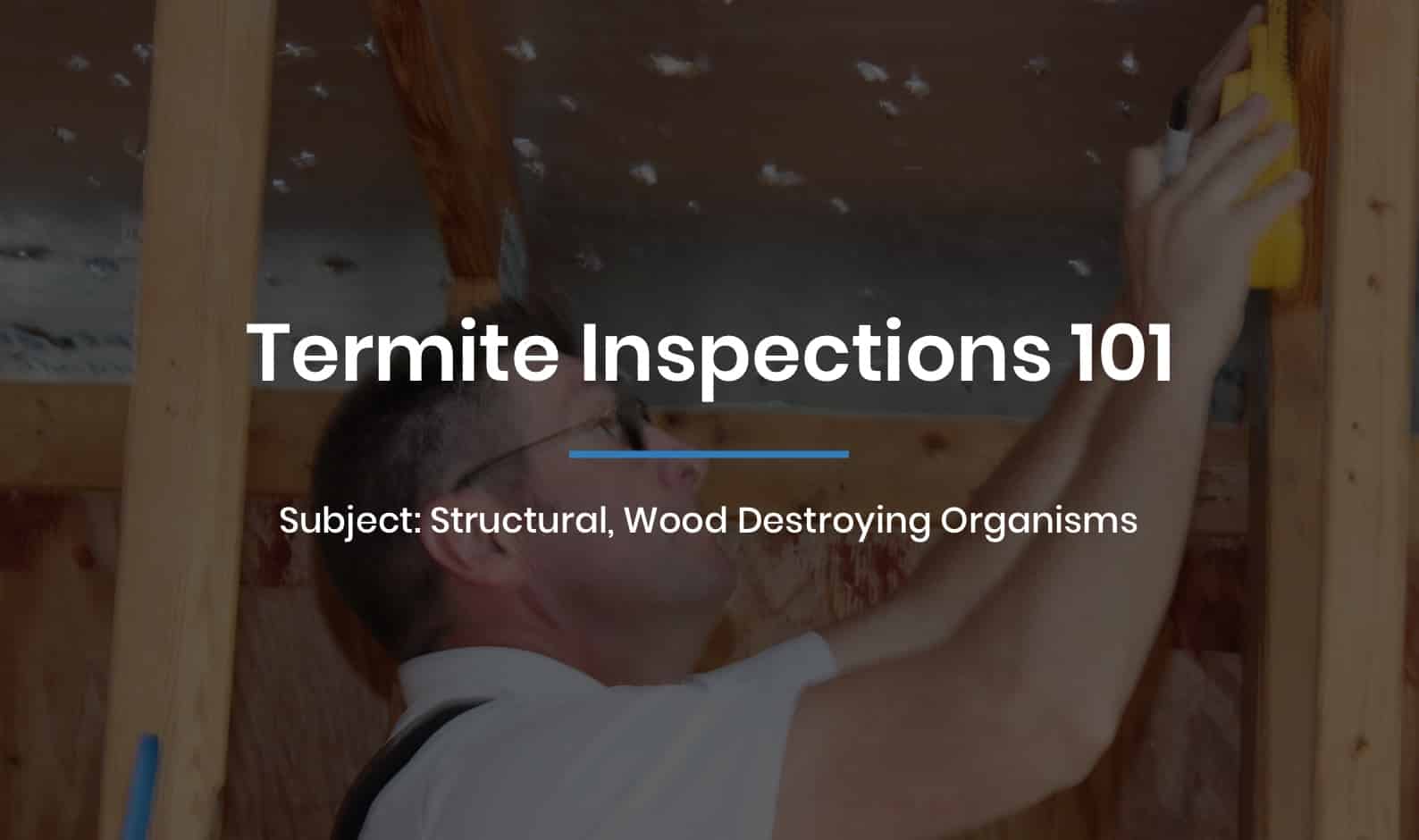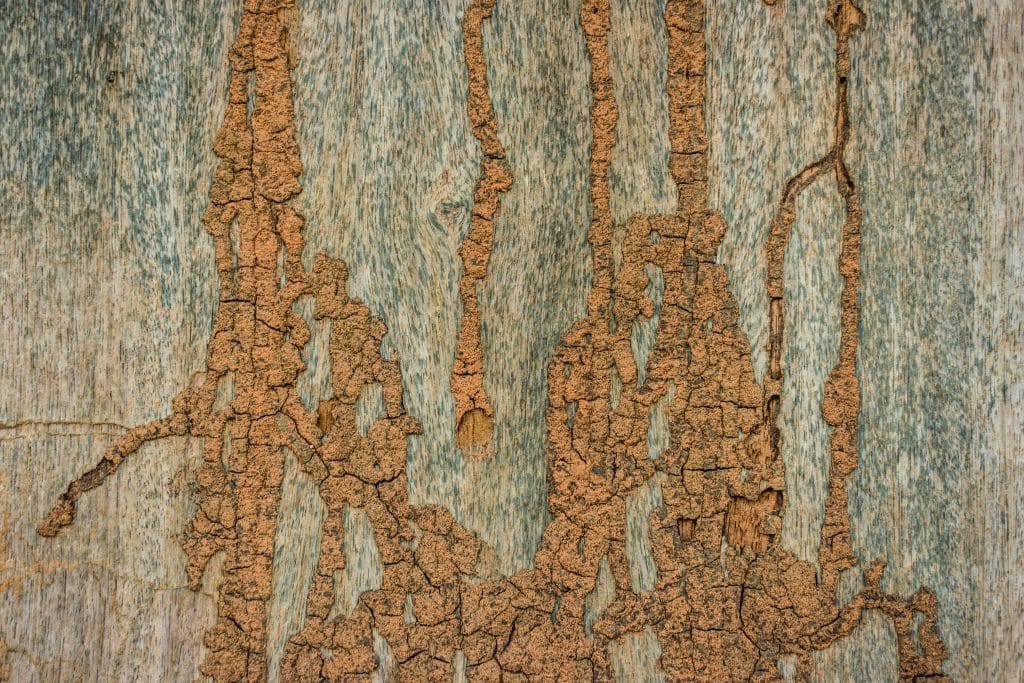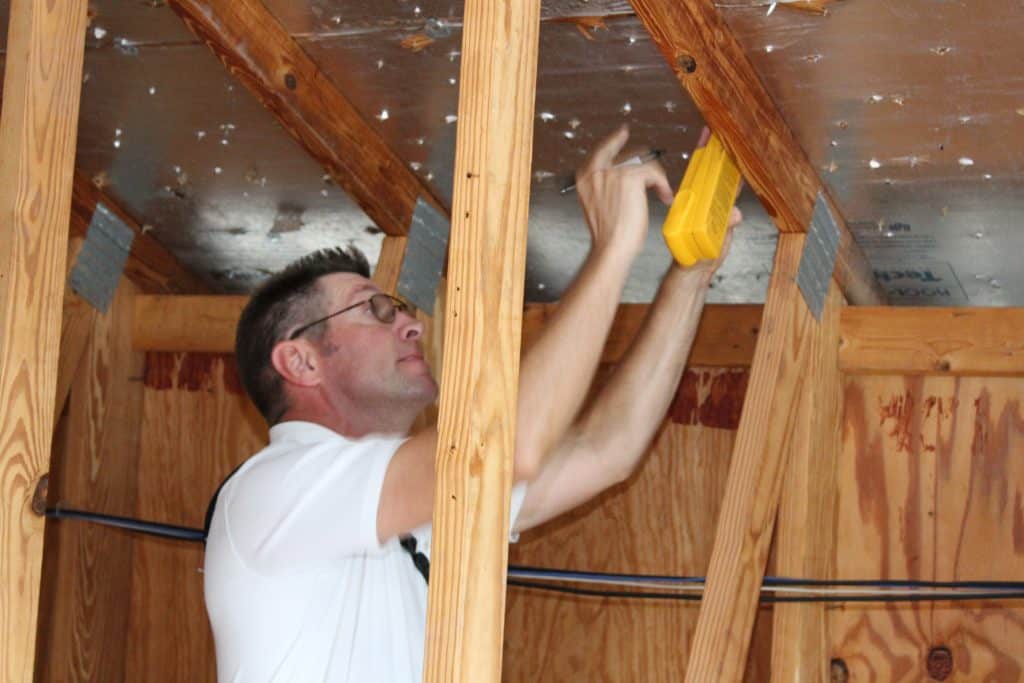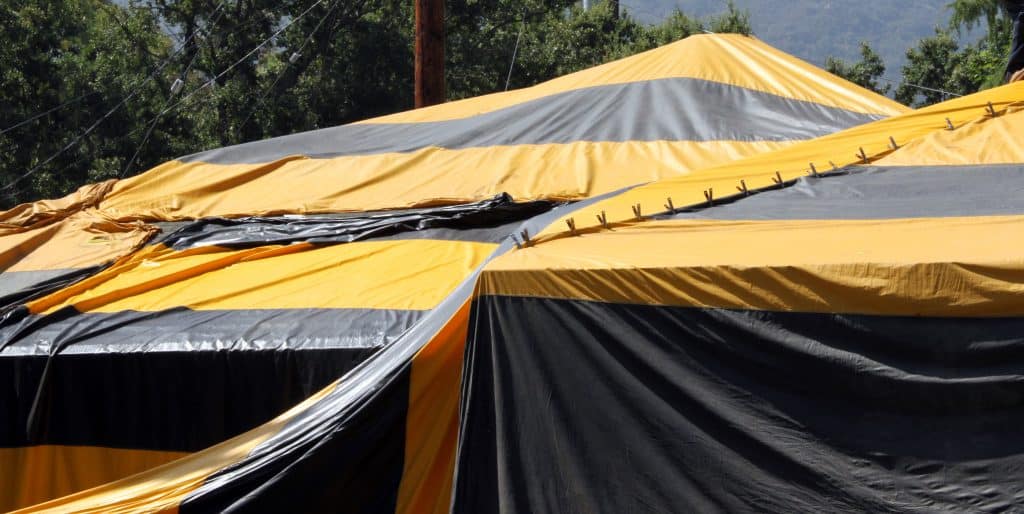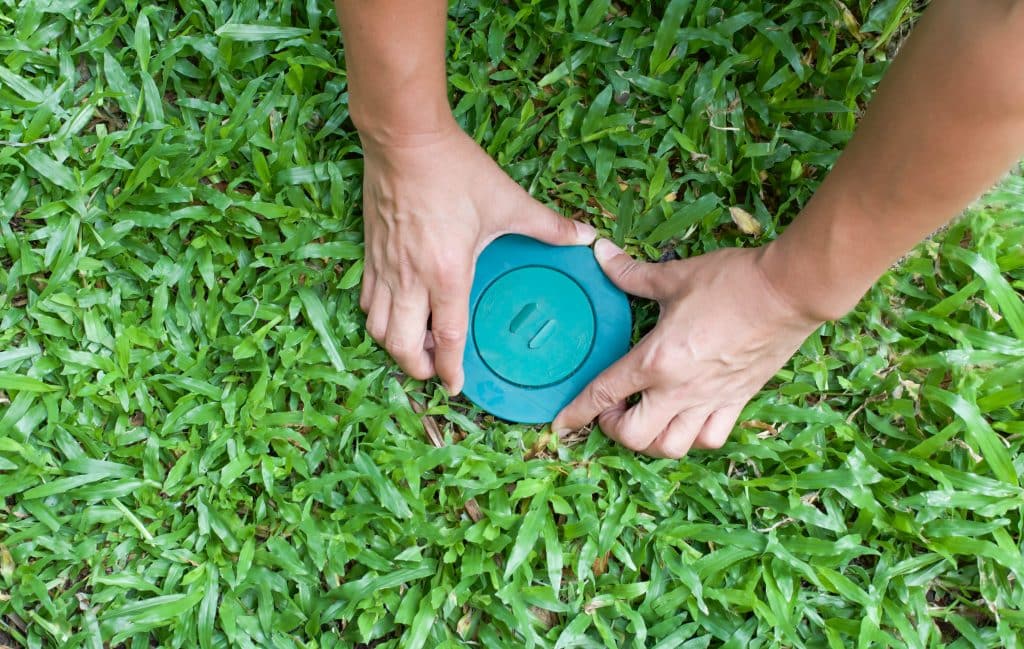If you’re a homeowner, you’re probably concerned about termites.
The words “termite infestation” bring up distressing images of crumbling wood, squirmy bugs, and those awful fumigation tents. But, while termites are one of the most destructive types of pests, the good news is you can prevent thousands of dollars worth of damage if you catch the infestation early enough.
If you suspect that you have termites crawling under your house or in the walls, it’s a good idea to get a termite inspection.
Read on for more information about what to expect during a termite inspection and learn what it entails.
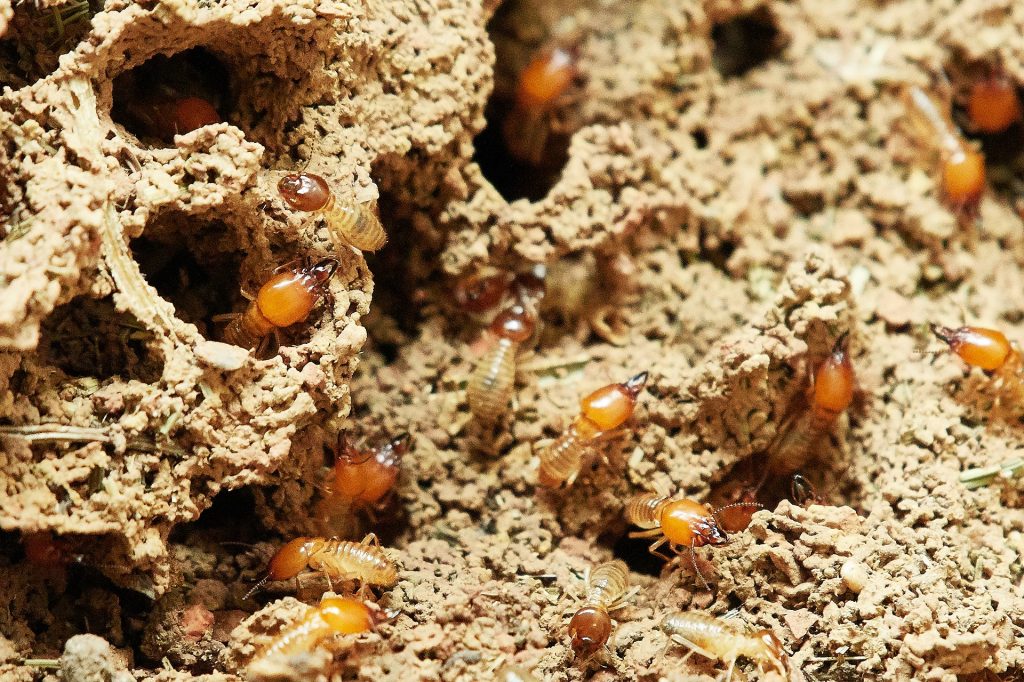
When To Get A Termite Inspection
All termites can be difficult to detect, because they live completely inside their food source (i.e. wood). But they don’t live in your home completely evidence free.
Common signs of termites found during Orlando termite inspections are:
- Swarmers or shed wings
- Termite droppings (“frass”) that resemble sawdust or coffee grounds.
- Seeing “ants” in your home (ants’ wings are different sizes, but termites’ wings are all the same size and are typically larger than the body),
- Wood that sounds hollow or papery when tapped,
- Overly sunken wood floors
- Tunnels in wood
- Warped or stuck windows and doors (termites have a high moisture content, so they can cause the wood they are in to expand)
- Mud tubes (for subterranean termites)
One of the less common signs of termites is a soft clicking sound in your walls. If they sense danger, termites bang their heads against the walls of their tunnels to warn the rest of the colony.
How To Prepare for a Termite Inspection
Talk to your termite inspector prior to arrival so that you can prepare adequately and make their job shorter, easier, and more effective at finding termite damage. Some general preparations to take are:
- Remove all items from under your sinks and around pipes
- Trim trees that are near walls or the roof of your house
- Clear the attic for easy access/viewing
- If you have a crawl space, make sure it’s clear too
- Try to clear items from the garage walls
How Is a Termite Inspection Done?
A termite inspection is done by hiring a professional to examine various areas of your home for signs of termite activity or damage. This includes looking for mud tubes, looking at wooden structures for hollow spots, checking areas where termites thrive, and entering the various areas of your home.
Tools used are flashlights, screwdrivers or knives (for probing wood), and sometimes moisture meters or thermal imaging cameras.
How Long Does a Termite Inspection Take?
A termite inspection duration varies depending on the size of your house, the location, accessibility, and the layout. A typical termite inspection takes around 1 or 2 hours for an average sized home.
If an infestation is found, the termite inspection will take longer than normal so the inspector is confident they have found all damage or colonies.
Termite Inspection Cost
Again, termite inspection cost can vary widely depending on the property size, location, and which company you choose to conduct your inspection. On average, a homeowner can expect to pay between $75-$150 for an inspection.
Make sure to ask your inspection if that cost will go up if an infestation is found. If found, the inspection may become much more extensive and therefore expensive.
The best way to save money on a termite inspection is to shop around. Get a few quotes, look at reviews, and decide who is best for your home.
What If House Failed Termite Inspection?
There’s not really a ‘pass’ or ‘fail’ when it comes to a termite inspection but if there are termites found it’s important not to panic. The inspector will provide a report with the extent of the infestation and any damage it has caused. The next steps will involve a termite treatment plan that eliminates the insects and finding out what repairs are needed.
Termite Prevention
The best treatment for termites is to prevent them from taking up residence in your home in the first place.
There are several things you can do to prevent termites. They are:
- Pest Control: Most pest control companies will offer maintenance plans to periodically inspect your home for termites.
- No Wood: Termites love water and wood. The combination can result in an infestation. Make sure that the perimeter of your home is free of wood and your home won’t be appealing to these pests.
- Moisture: Cut down on the amount of water that you allow to accumulate around your home. Clean your gutters so water doesn’t collect and routinely check your home for leaks or water damage.
Termites Are Pests…Don’t Let Them Become a Nuisance To Your Home
Termites are expensive and time-consuming to get rid of, but early detection is the key to minimizing your losses.
If you notice any “ants,” crumbling wood, shed wings, or “sawdust” around your home, schedule a WDO or termite inspection by a qualified pest control company or home inspector immediately. A wood destroying organism inspection will detect whether your home is infested with termites, beetles, fungus, or any other threat to your wood frame house or furniture. Waiting will only allow more damage (and termites!) to accumulate.
WDO inspections can also facilitate the homebuying process. Having a WDO inspection done will verify the home is free of pests, whether its done before or after a sale.
EDC Professional Home Inspections is ready to assist you with all of your home inspection needs. Call us today to schedule your termite inspection.
